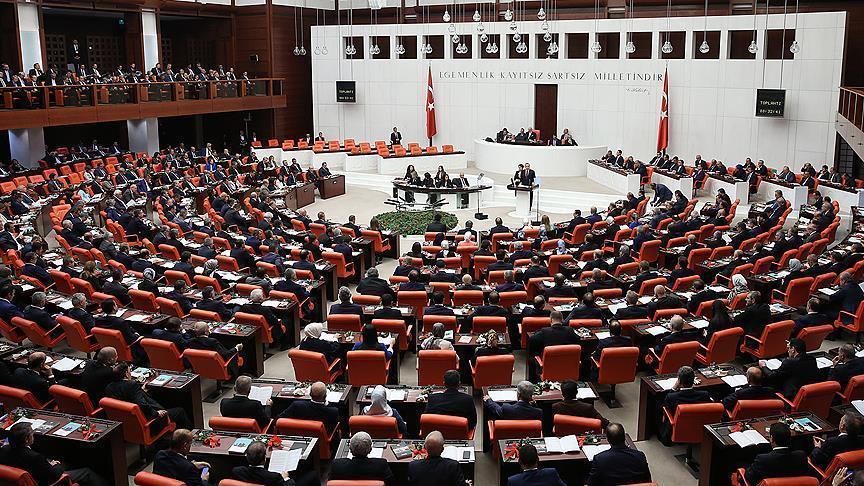
A parliamentary commission has passed a law authorizing the cabinet to issue decrees and to change legislation without any legislative supervision, amid opposition criticism that the move violates the constitution.
The law authorizes the cabinet to make legislative changes and issue decrees regarding public institutions, their organizations and duties, was passed in the commission and was submitted to parliament on May 10. It will be valid until the snap presidential and parliamentary elections to be held on June 24.
With the law, the cabinet will be able to pass harmonization of current legislation in line with the controversial constitutional amendment approved in the April 2017 referendum, to make regulations on the establishment of public institutions and associations, and to redefine institutions under the Prime Ministry. It also authorizes the cabinet to make changes and regulations on articles regarding the president’s executive authority
According to the constitution, legislative changes must first be submitted to parliament before being referred to the related constitutional parliamentary commission. After due assessment by the commission, the draft is submitted to parliament’s General Assembly for MPs’ discussion and then voted on.
After the June 24 elections the new constitution that was narrowly approved in the April 2017 referendum, which marred by allegations of voting irregularities, will go into full effect and the president-elect will have the executive authority to issue presidential decrees on the subjects referred to in the latest, while the post of Prime Ministry will be lifted.
Violates constitution
During debates in the General Assembly opposition deputies blasted the empowering law, saying it is against constitutional procedures.
“This authorization has no limit … The authorities outlined by the constitution should not be violated. We are lifting tradition of thousands of years. Who will replace the prime minister?” CHP deputy Bülent Kuşoğlu said.
CHP deputy Lale Karabıyık said the Constitutional Court would not be able to conduct due supervision of the changes due to the limited timeframe.
“The supervision of all institutions will be given to one authority. It is very dangerous,” Karabıyık added.
Peoples’ Democratic Party (HDP) deputy Meral Danış Beştaş said the enactment “seizes” the authority of parliamentary commission and due procedures.
‘The enactment is obligatory:’ Deputy PM
Deputy Prime Minister Bekir Bozdağ defended the law, saying the harmonization of current legislation needs a new procedure as snap elections will be held on June 24.
“Because the election has been brought forward there is no possibility of referring these changes to parliament, assessing them in the commissions and discussing them in the General Assembly. That is why it was not an option for the government, it was a necessity,” Bozdağ said.
He added that with the enactment 40 of 80 decrees will be changed, 2,483 articles will be lifted, and 2,470 articles will be amended.
“We are not taking the authority to do something that is not stipulated in the constitution. The usage of the authority will be supervised by the Constitutional Court. After the president-elect takes an oath, presidential decrees will be enacted and the new system will work perfectly without any problems in the working of the state. The system in Turkey has changed,” Bozdağ said.